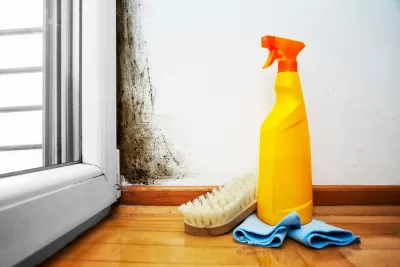Is your home causing Asthma?
Medically Reviewed by Dr Ali Zavery
Last updated on 13.06.2024
Overview
Our homes are not just a roof over our heads- they play a key role in our health, particularly when it comes to allergies and asthma. A study carried out by Asthma Australia in 2022 showed that almost one third of people with asthma or allergies find their symptoms get worse when they are at home, regardless of whether they are owners or renters! We all want a safe and healthy place to live- so, as an asthma or allergy sufferer, what are some of the key things to check in your house?
Cooktops & rangehoods
Gas cooktops are often preferred by home cooks, but they are linked with poor health, as the burning of gas releases many nasty substances that cause health problems, including the triggering of asthma. Cooking with gas is estimated to be responsible for up to 12% of the childhood asthma burden in Australia. While gas is still by far the most common type of cooktop in Australia, just one quarter of Australians are aware of the related health issues. It may be time to explore other cooktop options if you have an asthma or allergy sufferer in your household. Using a well maintained rangehood, an air purifier or simply opening a window while cooking can improve indoor air quality. Rangehoods that are vented outdoors are the most effective. It is also important to clean rangehoods regularly, and/or if your rangehood has a carbon filter, this needs changing every 12 months or so.
Gas and wood heaters
According to the research, 7% of Australians are still using unflued gas heaters. These heaters release harmful pollutants directly into the home, affecting air quality. Wood heaters are also popular, with around 13% of Aussies using them regularly. Again, this can have a negative effect on the air inside the home, and cause asthma to flare up.
Damp and mould
Mould commonly grows in damp places like showers, sinks and around leaky pipes. It can also develop in buildings that are badly ventilated or poorly maintained. No amount of mould is safe for health, because it releases millions of spores into the air, that are then inhaled. When breathed in, these spores can irritate the airways and cause an allergic response, leading to asthma flare-ups and other health issues. If you can see mould forming anywhere in your home, you should try to get it dealt with as soon as possible.

Other pests
Most people are aware of the problems caused by dust and dust mites. Removing rubbish regularly, decluttering, vacuuming the house, washing sheets and pillowcases, and replacing fabric furnishings and blinds with alternatives can help asthma sufferers.
Air conditioning and cooling
There is not yet enough evidence to suggest whether one type of air conditioning is better than another for people with asthma. However evaporative or refrigerated cooling systems may lead to increased humidity indoors, which could in turn worsen mould- this is worth bearing in mind if damp has been an issue in your home. Overhead ceiling fans should be wiped clean on a regular basis, so they do not continuously make dust airborne in your living space.
What can I do to improve my home?
Many people may be aware of the above issues, but struggle to tackle the problems in their living space due to cost. Others may also be restricted by reliance on landlords, real estate agents or social housing providers to take action on their behalf.
To find out more about reducing the risk of allergies and asthma in your home, Asthma Australia have helpful checklists that allow you to assess your own space, whether you are a homeowner or in rental accommodation.
Better Health also has good advice on making your home “asthma friendly”. You can also speak to an asthma educator for further advice.
Getting a Mental Health Care Plan in Australia: Your Guide
Getting a Mental Health Care Plan in Australia: Your Guide Mental health matters—and if you’re feeling overwhelmed, anxious, or down, a mental health care plan can help. But what is it, and how do [...]
UTI Symptoms and Treatment: What You Need to Know
UTI Symptoms and Treatment: What You Need to Know Urinary Tract Infections (UTIs) are common, uncomfortable, and often disruptive. But what exactly are the signs to watch for, and how can you get relief [...]
Free Mental Health Care Plan Online | Bulk-Billed by Qoctor
Free Mental Health Care Plan Online | Bulk-Billed by Qoctor Discover how to get a free, bulk-billed Mental Health Care Plan (MHCP) in Australia through Qoctor's telehealth service. Accessing [...]






